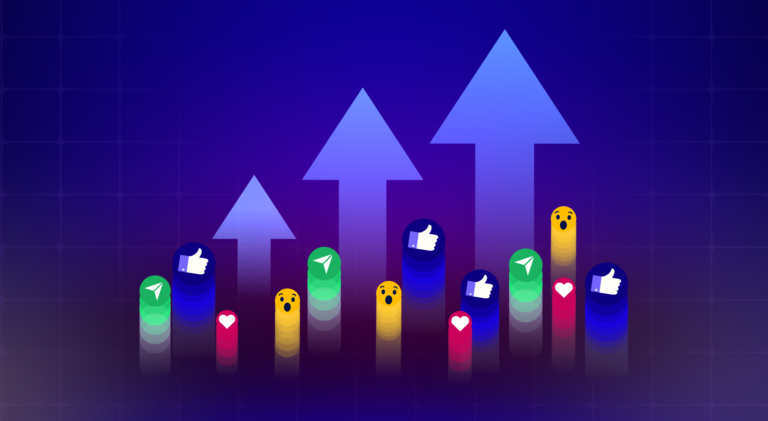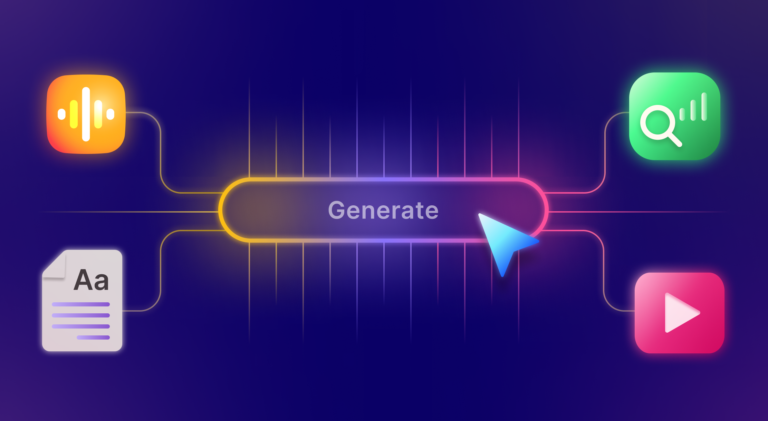
Table of Contents
- Digital Marketing: A Definition
- The Early Ages of Digital Marketing
- The Present
- Key Takeaways
- Conclusion
- FAQs
Digital marketing started in India between 1996 and 2005, when the Internet was still not available in most interior parts of the country. However, today every small business has heard of digital marketing and is willing to try considering the remarkable connectivity across the country. The evolution of digital marketing in India is at its peak, and the future digital marketing trends portend excellent revenues for those who jump onto the bandwagon.

Digital Marketing: A Definition
Digital marketing was first heard of in India during 1980-90 when it was still nascent. The evolution of digital marketing happened in stages, around 1996 when computers and laptops first arrived on the scene. Digital marketing can be roughly defined as promoting a brand via the Internet, and of course, the electronic media. However, there are several nuances to it, which you need to understand to be successful.
With the advent of the World Wide Web, digital marketing got a new impetus, which was further aided by the developments in creating Web platforms. Added to this were the technologies to develop websites, which helped portray a brand better, and aided faster interaction over the net. Until this time, advertisers used traditional methods like radio, TV, and print media for advertising. However, digital marketing enables marketers to deliver messages much faster and to niche groups known as the target audience in digital marketing terminology.

The Early Ages of Digital Marketing
Today, you can reach your target audience very quickly. As the hip crowd is generally on the go, most information is passed on via the web and accessed via mobile devices. However, the situation was quite different in the early days. With the Internet first appearing on the scene, the first platform used to disseminate information was the Web 1.0 platform. However, people could only view the data, not respond to it over the web, or share it with their peers.
It was only in 1993 that a clickable banner could go live, triggering the sale of banner ads for advertising purposes. The following year witnessed the advent of new technologies, and means of communication got a fillip with Yahoo appearing on the scene.
Yahoo was the Facebook of those days and crossed 1 million hits on the maiden year. It set the trend for digital marketing, was a forerunner to future digital marketing trends, and companies started building websites to be optimized for better visibility on the net. Google was already on the scene (1998), but the search engine could not be utilized to the marketers’ benefit as the websites that could be optimized were still being developed.
The Present
One would assume that the digital marketing world now is limited to social media, posts on Facebook, Twitter, and Instagram. There’s much more to it than that because the digital marketing trends in the future are already here.
The history and evolution of digital marketing indeed make a fascinating study. Right from the humble beginnings with the Web 1.0 platform, we are now witnessing Artificial Intelligence (AI), Augmented Reality (AR), voice search optimization, and programmatic advertising.
Leading the pack in digital marketing trends in the future is AI, which is set to impact all lives.
Did you know that over 60% of Internet users have already had encounters with chatbots to have their issues resolved? Almost all the content present on social media channels is already customized with the help of AI to keep people engaged for more extended periods. AI, that’s expected to be a $190 billion industry by 2025, is here to be a part of the digital marketing of tomorrow.
Close behind AI is Augmented Reality (AR), a crafty mix of the real and virtual world. AR promises real-time interaction and fantastic Sci-Fi ideas that have everyone at the edge of their seats. Experts find that AR is set to replace Virtual Reality (VR) sooner than later. Most brands are already switching to AR technology to enhance customer experience and drive revenues.
Voice search optimization is not far behind. It is popular among teenagers, 55% of whom rely on voice search optimization as part of their daily online activities. With Amazon, Alexa, and Google Home already present in 20% of households, voice search optimization is a big hit with today’s crowd. Google can match verbal queries with 95% accuracy and is set to drive 50% of online shopping by 2022.
Key Takeaways
- New trends in technology are replacing old methods, and digital marketers need to keep up with the times.
- Artificial intelligence and voice search will fast replace traditional search methods on Google.
- Experts find that AR is set to replace Virtual Reality (VR) sooner than later.
- Content is still king but needs to be presented in new formats to suit today’s consumers.
Conclusion
Although technology rules the roost today and will drive tomorrow’s markets, a human touch is always required. After all, marketers are dealing with humans and not robots; hence, interacting with consumers to understand their pain points is still crucial for marketers to succeed. When you look at the history and evolution of digital marketing, you will see that every single technology has been supported by the human touch.

FAQs
The scope for digital marketing in India is pretty large, and in terms of dollars, it will be worth close to $160 billion by the turn of 2025, according to a research report by Goldman Sachs, India. Although the evolution of digital marketing in the country was slow in the early stages, this forecast of a three-fold increase shortly is because of the rapid strides the industry has been making of late. Most businesses in India are switching from traditional marketing practices to digital marketing.
Digital marketing helps businesses sustain themselves, especially during this pandemic, virtually stopping all business activities. Thanks to the fast evolution of digital marketing, businesses can maintain social distancing and continue with their business activities. Future digital marketing trends promise good times for all businesses to conduct most of their business online via digital marketing.
Although it is difficult to pinpoint the exact date or year, digital marketing started sometime between 1996 and 2005. Digital marketing began to look promising only a few years later. It is because of the easy availability of the Internet in remote areas and the fact that people became aware of the search engine services of Google, and Bing, later.
There’s no denying the fact that digital marketing has a bright future. This perception is based on the past of digital marketing in the country, which has recorded unprecedented growth. Digital marketing is here to stay and will continue to be the mainstay of small, medium, and large businesses. As the market dynamics evolve every day, digital marketers need to be more agile, alert, and creative to stay ahead of the competition.
Just as the evolution of digital marketing progressed, so did digital content. Content is still king and will continue to play a crucial role in the future of digital marketing. With new consumer demands increasing, technology advances like virtual reality (VR), mobile video, augmented reality (AR), artificial intelligence (AI), and machine learning will all contribute to enhancing digital marketing activities. The future of digital marketing will witness the application of data analytics in a more refined form and will dominate the future trends.
Latest Blogs
Explore how Google’s 2025 AI search updates triggered ranking chaos. Learn actionable strategies to adapt your SEO for AI Overviews, zero-click searches, and SERP volatility. Stay ahead now.
Learn how to rank on AI search engines like ChatGPT, Perplexity, and Gemini by optimizing your content for authority, structure, and relevance. Stay ahead in AI-driven search with this strategic guide.
Explore the best healthcare SEO services for your medical practice. Improve online visibility and effectively reach more patients in need of your services.
Get your hands on the latest news!
Similar Posts

Artificial Intelligence
6 mins read
The Role of AI in Digital Marketing: AI Article Generators Transforming Content Creation

Artificial Intelligence
4 mins read
How AI Content Creator Is Shaping the Future of Digital Content

Digital Marketing
3 mins read